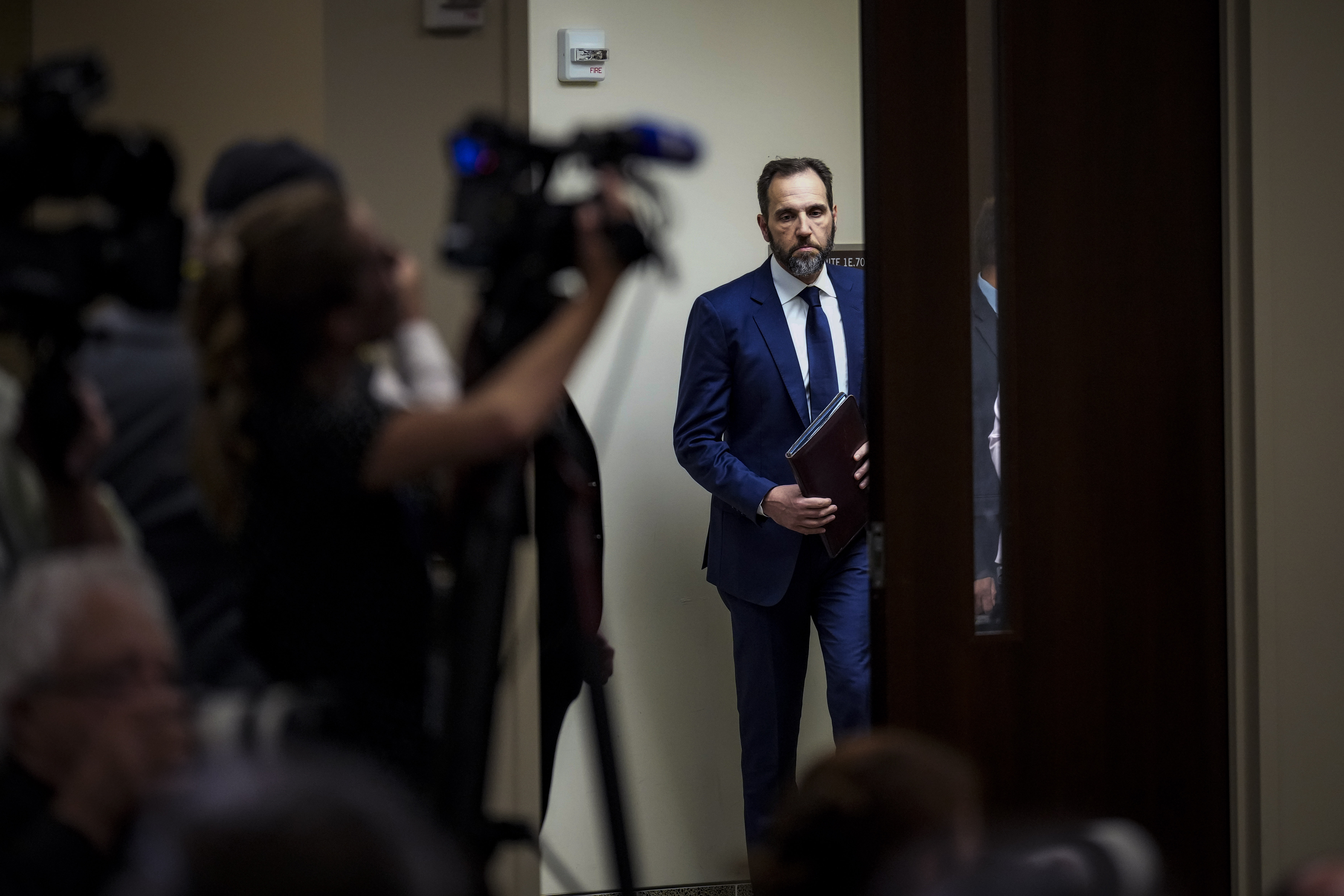Updated
Judge Hears Arguments About Jack Smith Appointment, Trump Gag Order
Save

Special Counsel Jack Smith arrives to give remarks on a recently unsealed indictment, including four felony counts against former U.S. President Donald Trump in Washington, D.C., on Aug. 1, 2023. Drew Angerer/Getty Images
Here is the latest
•
DOJ Says Trump Entitled to Be Frustrated With Order, But Some Statements Not Allowed
•
DOJ Says No Causal Link Needed to Apply Gag Order
•
DOJ Says Order Under Florida Jurisdiction
•
Defense Says He Hopes Special Counsel Can Go After Doxing
•
Defense Explains 'I'm Coming After You' Post